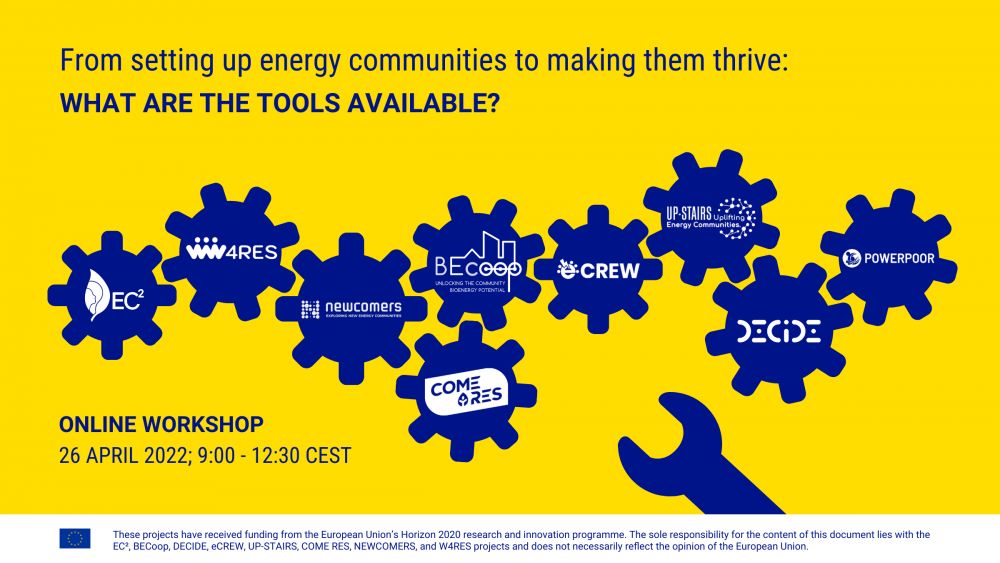Tapping the full potential of community energy in Europe
25 May 22
Last month nine EU-funded projects joined forces to engage users in the tools they have developed to support energy communities. In the digital event “From setting up energy communities to making them thrive: what are the tools available?” gathering over 100 participants, nine EU-funded projects showcased the tools they are providing to organise/plan/grow a community energy initiative.
Energy communities have high potential for moving away from imported fossil fuels, and tools made for various market players, from citizens to technology providers, can support them in doing so. We increasingly request from citizens and consumers to do their share and contribute to the effort to reduce energy consumption everywhere in the world. Last week again, the International Energy Agency and European Commission organised an event and released 10 recommendations for all to “Playing [their] part: How to save money, reduce reliance on Russian energy, support Ukraine and help the planet”.
Several projects working on the topic of energy communities gathered at the event on April 26. They can only confirm the willingness of citizens to join in such initiatives becoming prosumers and reinforcing their energy citizenship, trying to move away from fluctuating energy prices. With the ongoing war in Ukraine, inequalities are rising together with energy prices: we need to ensure social justice, as was highlighted by keynote speaker Dimitris Tsenekis from Friends of the Earth, coordinator of the European Community Power Coalition.The nine projects have developed tools to support users at various stages - while starting a project or needing to get more people involved. In total, 17 speakers presented 18 tools and demonstrated that the resources are at hand: guidebooks, digital tools, capacity building activities, with a focus on various energy sources and targeting different audiences.
The spotlight on energy communities is still quite young - especially on the legislative side, and the event showed that there are indeed multiple types of energy communities which can vary significantly based on a variety of factors. People, to be engaged and make use of the presented tools, need energy literacy: projects are also providing resources in that aspect.
The projects therefore recognised the need to facilitate access to the tools further than the research community, and ensure they reach the people who might need them - focus for this needs to be put on breaking the language barrier and adapting to national / regional contexts. One idea could be to make the tools open access for replication and make sure the content is well categorised and searchable by country, with the objective to ensure they are exploited well after the projects end. They could for instance be adopted by local/regional/national bodies and governments that can further use/develop them. What do users need? We learned that they want simple and easy to use tools, without many steps or too much information to enter, for instance they supported assessment tools to assess the economic viability of a specific/local solution. H2020-funded projects are research projects and while they need to provide tools that can be directly implemented and acknowledge the limitations of the existing regulation (technical, legal or organisational) they also have a responsibility to test potential solutions and push the envelope on what is currently not yet regulated.
Some of the tools presented are available on the tools page.
All news
